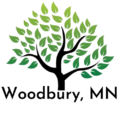Are you eager to stay informed about the upcoming local elections but unsure where to find reliable information? Look no further! This article will guide you through the various sources where you can easily access all the details pertaining to your local elections. Whether you are curious about the candidates, their policies, or the voting process itself, we have got you covered. By the end of this article, you will be equipped with the knowledge to make an informed decision and actively participate in shaping the future of your community.

Government Websites
Government websites are a great resource for finding information about upcoming local elections. City or town websites, county websites, and state government websites often provide up-to-date information on election dates, polling locations, voter registration, and candidate information. These websites are typically maintained by the respective governments and can be accessed easily by searching for the official government website of your city, county, or state.
Election Commission or Board of Elections
Local election commissions or boards of elections are responsible for overseeing the electoral process in a specific area. They play a crucial role in providing information related to local elections. Both the local election commission and the county board of elections can provide information about voter registration, absentee voting, ballot measures, and candidate filing. These offices may also have voter guides or sample ballots available for reference.

Local Newspapers
Local newspapers, whether in print or online, serve as valuable sources of information about local elections. Print newspapers often publish election-related articles and voter guides that provide insights into the candidates, their positions on various issues, and important election dates. Online newspapers not only provide news articles but also offer interactive features like candidate profiles, forums, and comments sections where voters can engage with each other and ask questions.
Television and Radio Stations
Local television and radio stations often cover local elections extensively, offering news segments, interviews with candidates, and coverage of campaign events. These stations typically have websites where you can find additional election-related information, such as profiles on the candidates, recordings of debates, and news articles. Tuning in to local news broadcasts or listening to local radio talk shows can give you valuable insights into the election process and help you make informed decisions.

Political Parties
Political parties play a significant role in local elections, and they can provide valuable information for voters. The Democratic Party and the Republican Party are the two major parties in the United States, and they typically have local branches and organizations in various areas. These parties often have websites that provide information on their endorsed candidates, party platforms, and key issues. They may also hold local events and town hall meetings, which can be a great opportunity to meet and interact with candidates.
Nonprofit Organizations
Nonprofit organizations focused on good governance and voter education can be excellent sources of information on local elections. The League of Women Voters is one such organization that promotes voter education and active participation. They often publish voter guides that provide unbiased information on candidates and ballot measures. Another organization, Common Cause, advocates for transparency and accountability in government. They may offer resources and tools to help citizens understand the election process and make informed choices.

Social Media
Social media platforms have become increasingly popular for sharing information and engaging with local politics. Many government agencies maintain official social media accounts where they provide information about elections, including voter registration deadlines, early voting locations, and important updates. Additionally, local political groups or pages on platforms like Facebook can provide insights into local issues, candidates, and upcoming events. Engaging with these platforms can help you stay informed and connected with your local political landscape.
Community Centers and Libraries
Community centers and public libraries often serve as hubs for civic engagement and information sharing within local communities. These places may display flyers, brochures, or posters with details about upcoming elections, voter registration materials, and contact information for local election offices. Libraries may also organize events or workshops on voter education or candidate forums. Visiting your local community center or library can provide you with a wealth of resources and opportunities to learn more about local elections.

Campaigns and Candidates
Campaign websites are another valuable resource when seeking information about local elections. Candidates often have dedicated websites that showcase their background, experience, and policy positions. These websites may also provide information about campaign events, volunteer opportunities, and contact information. Additionally, candidate forums or debates offer a chance to hear directly from the candidates and learn more about their views on various issues. Attending these events can allow you to ask questions and make more informed decisions at the ballot box.
Voter Information Hotlines
Local voter information hotlines can be a convenient and reliable source of information for questions related to local elections. These hotlines are often operated by the local election commission or board of elections and can provide information on voter registration, polling locations, absentee voting, and other election-related inquiries. The staff manning these hotlines are trained to assist with any concerns you may have and can help ensure you have the information you need to exercise your right to vote.
In conclusion, finding information about upcoming local elections is crucial for participating in the democratic process effectively. Utilizing resources such as government websites, election commissions, local newspapers, television and radio stations, political parties, nonprofit organizations, social media, community centers and libraries, campaign websites, and voter information hotlines can empower you to make informed choices and actively participate in local elections. Remember, your voice matters, and staying informed is the first step towards making a difference in your community.

